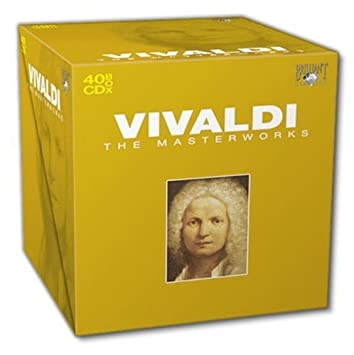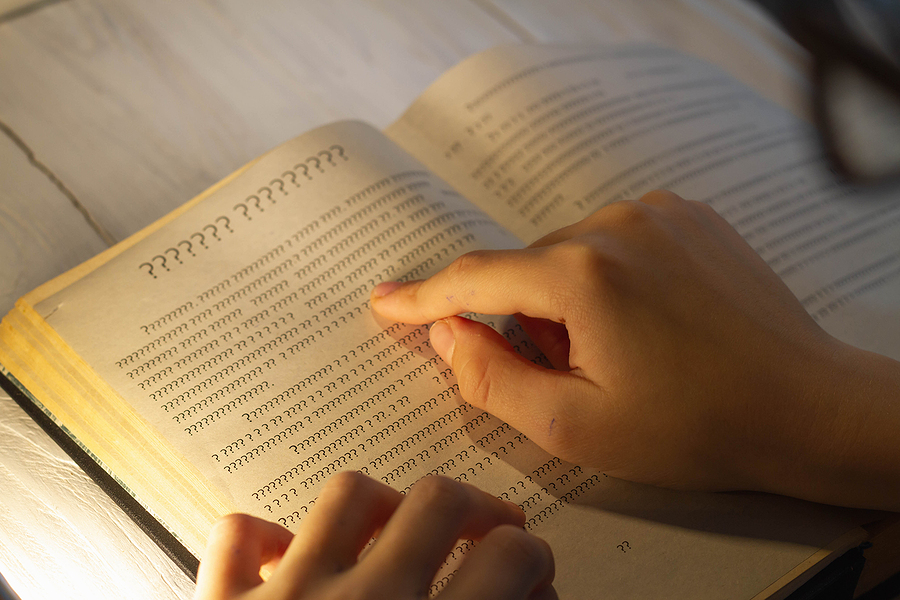I’ve been making an annual musical journey during the pre-Easter Lenten season. I wrote about a couple of those before (here and here). I thought it might be fun to reveal this year’s version.
Since mid-February, the only music I’ve listened to in the car or while on a plane has been the collected works of Antonio Vivaldi (1678-1741). While most of us are familiar with his “Four Seasons” (listen here), I chose not to include that in the mix. Instead, I let each of the other songs in the “Vivaldi Masterworks” forty-disc collection play. Instead of focusing solely on the 40 days before Easter, I began this experience in early February. Then, during Passion Week, I only listened to Vivaldi’s “Gloria in D Major” on repeat. (Here is a video link to the music with the entire score so any musicians can follow along.)
Some Vivaldi History
Out of curiosity, I read much of a book by H.C. Robbins Landon titled Vivaldi: Voice of the Baroque. Sadly, Vivaldi died in obscurity and poverty. His work was not “discovered” for 200 years after his death. The rediscovery was accelerated in the mid-1930s when violinist Olga Rudge cataloged 300 of Vivaldi’s instrumental pieces for the National Library of Turin, Italy, and held small concerts. It wasn’t until after World War II that the first recording of “The Four Seasons” on 78 rpm records was released in 1950, and a renaissance began. (I’ve simplified this history, of course.)
We have no idea how many pieces of music he wrote as so many have been lost to time (nearly 1,000 have been cataloged). Even as recently as 2006, some previously undiscovered musical scores were found. At last count, there are more than 500 concertos, 350 for solo instruments and strings. Another seventy or so concertos are for two or more instruments and strings. Also, he wrote around 90 sonatas and chamber-music compositions. A large collection of sacred choral music exists, including “Gloria” mentioned above and his rendering of the “Magnificat.” In addition, there are at least 46 operas (which I did not listen to!).
Vivaldi was a teacher of music at the Ospedale della Pietà, a home for abandoned children. Many of his compositions were written for the all-girl music ensembles at the school. He was also a Catholic priest, but his health prevented him from serving in a parish. (He was known as “The Red Priest” since he had a head of bright red hair.)
Despite his 200 years of obscurity, he was well known by other composers of his day, Johann Sebastian Bach in particular. In that CD collection, an entire disc is devoted to Bach’s organ transcriptions of some of Vivaldi’s violin concertos.
Personal Reflections
By choosing not to listen to the radio or podcasts or any other artist, I found my mind both narrowing in focus and widening at the same time. For me, one of the lures of Baroque is the mathematical precision of the notes. There is an order to it.
Classical music can also fade into the background and relax the “listen to me Now!” shout of other genres. This has created times of reflection. In fact, I would find myself looking forward to those moments behind the wheel.
Larger Picture Reflections
The sheer volume of Vivaldi’s compositions is extraordinary. To think of those students having a teacher who could write original music for them as part of their curriculum is rather breathtaking.
I was also struck by the immense talent of anyone who performs these works. For example, one disc was oboe concertos. Another, flute. The list also included bassoon, cello, recorder, and mandolin! Imagine him having a talented student in his orchestra and creating something for them to perform to highlight their talent.
Then, centuries later, someone who has devoted their life to mastering an instrument and spent countless hours practicing, recorded something that I was able to enjoy.
To those who are in the arts of all kinds (music, dance, painting, writing, sculpting, etc.), you have a wonderful gift. A gift that can, and will, touch someone, somewhere, because you are obedient to utilize the gift for God’s glory.
As you labor with your writing, enduring the dry times, the frustration of the industry, and those ever-present voices saying you aren’t good enough, think of Vivaldi. He used his gifts to the best of his abilities. But he did not enjoy wild success during his lifetime. But you and I, 250 years later, can be blessed by glorious music.





Ah, Vivaldi. I once worked in a place where the only music available was classical, and the programme manager loved Vivaldi.
So my mates and I worked up a skit (the local forces used uniforms that had a decidedly Germanic look, which helped, since we could borrow stuff) in which I played an Erich von Stroheim-like interrogator.
Weird wars make for weird fun, I guess, and thus forgive me, for I have… wait for it…sonnetized the experience.
‘pfaffe’ is derogatory German slang for priest.
You haff made, ja, kvite a fuss,
ja, on und on you go,
und now, freund, you vill tell us
vat ve vant to know,
oder ve use ze torture
und I know just ze zing,
pfaffe Vivaldi’s oeuvre,
und ve vill start vit SCHPRING!
Durink inteRRRogation,
und ven you schleep und dream,
you vill betray your nation
or zay vill hear you scream
fur ziss dreadful zing to stop,
begging jetzt fur ZZ Top!
Ok, Andrew, that was delightful.
Anne, thank you so much. It is a memory that would have been lost but for Steve’s choice of a topic today!
In Mr.Holland’s Opus, a high school music teacher, eventually, comes face to face with the fact that his life and his gift have not been in vane.
Is our writing careers, first and foremost, transforming us more into the image of Christ, or is success, as we each see it, the rule for transformation?
Each and every word that we have ever written has the potential to produce life in our hearts, and cleansing for our minds.
That, in itself, can be the greatest return on His investment in each of us!
I couldn’t agree with you more, Steve. Vivaldi is the best! I have listened to his music throughout my life (BTW: praise God for people who have trained and practiced their craft to the level where they can play such incredible music!). It’s hard to explain, but whenever I hear Vivaldi, I have the experience of entering into a space that has been created by someone who has spent a lot of time in the presence of God.
Vivaldi has always been my favorite Baroque composer, after Bach (who has no equal). I played part of Vivaldi’s flute concerto (dont remember which) for my entrance exam to the High School of Music and Art in NYC, and by some miracle I got in. That was the high point of my musical career, although I still play, and listen to Vivaldi and Bach as worship music without words.
2nd movement of Spring, wonderful!
Fascinating! Thank you, Steve, for this inspiring gaze into this art and artist and another side of Steve Laube. I loved Music Humanities in college, but haven’t pursued it like you have, beyond singing in church choirs and dabbling at piano and violin.
You’ve piqued my interest. I will listen.
Loved learning this about you! I did the same thing but with a different genre 🙂 I only listened to the contemporary Christian group Newsong for the 2 or 3 weeks before Easter. I find the words to their songs hit home in a powerful way, particularly “Arise, My Love.”
Thank you for sharing this inspiring post. Vivaldi helped me endure many down times while working on my doctorate!
So beautiful! His talents were certainly not buried in the ground as he taught his students, turned their hearts toward the arts and the beauty of God’s world that can be found in creative pursuits, and composed for the specific students God gave him. Wow! What an honorable thing that this artist was known by the famous talents of the time but was unknown largely by the public, yet did not let jealousy eat away his heart and stop his work. He poured his skill into the work set before him. What an encouragement to do the same with what we are given!
You have inspired me to look into this great composer’s work. I studied the more well-known composers in college but didn’t recall hearing his work. What a blessing we have over 200 years later.
Steve,
Thank you for the links to the book and music. My husband and I are avid Baroque fans and buy seasons to the Baroque Chamber Orchestra of Colorado every year. When our daughter was in grade school, we used to listen to the Classical Kids series, CDs that told a fictional tale to introduce kids to the music of the composer. The one for Vivaldi’s Ring of Mystery is superb and prompted us to visit the Ospedale della Pietà in Venice when our daughter was 10. We recommend all the composer CDs highly.
Blessings on your week!
Donna
Very interesting! I like the idea of such a Lenten journey, and your feeling of both widening and narrowing your focus struck a chord.
The closest I’ve come to this is listening to the all-Christmas-music-all-the-time station from Thanksgiving weekend through Christmas. I haven’t paid particular attention to Vivaldi. I’ll do so now, keeping in mind the saying, “If it’s not Baroque, don’t fix it!”
I can relate to living a life mostly in obscurity and poverty too. Yet, I have tried to reach the world through the few talents I have. I feel sometimes like I’ve failed to reach any goals except one not-very-successful book… and one I am about to publish again soon… but I know the Lord is still there and He is still in control. He has a purpose for each and any of our lives. Even if we feel like the least of the batch… And I remember my mom humming and singing operas to me. I will have to go back and review and find out if those were Vivaldi or not. Thanks, Steve for a great blog today.
I absolutely adore Vivaldi. Especially the Four Seasons. Thanks for reminding me today. I’ve put it as background music as I write today.
From your post I think of my piles of short stories and writings upon which I now am standing and improving my own craft. If he hadn’t been experimenting with his craft all along we wouldn’t have the most famous ones we have today.
The “lost” music of Vivaldi has a kind of sad mystery to it. Music, unlike text, can only with difficulty be described with words. If it’s “lost,” how can anyone easily describe it? Lovely, majestic, triumphant…words are nothing like the pieces of Vivaldi. They can not do him justice. They truly remain lost without a skilled artist that can put life into the notes.